Artisan hand crafts lanterns
Updated: 2016-02-05 07:52
By Zhang Zhouxiang and Sun Ruisheng in Taiyuan(China Daily)
|
||||||||
In an age of computer-controlled graphics, each of the craftsman's creations are unique
A disorderly pile of thin iron wire, resembling spaghetti on a large plate, sits on the ground before 56-year-old Guo Erniu.
He considers the mound for a few minutes, draws some designs on paper, then picks up one end of the flexible 4.5-millimeter wire and starts to cut and bend. He works slowly, but steadily. In an hour, the shape of a monkey - the bones of a lantern - rises from the heap.
"Next we will weld the joints and put on a cover to make a larger-than-life monkey," Guo said, his eyes full of excitement.
Lanterns are a traditional decoration for the Lunar New Year and the Lantern Festival two weeks later, but the age-old way of making them has changed. Even though more companies use computer-controlled machines, the craftsman living in Hengqu village of Taiyuan in Shanxi province insists on crafting each structure by hand.
His son drafts some designs on a computer, but the main structure, especially the details, Guo painstakingly creates with his nimble fingers. "Every handmade lantern is unique, and it tells its own story," Guo said. "That's the soul of it. You can design the main body on computer, but the details need human feeling."
Guo's pieces can be divided into two main types: a Chinese Zodiac series, featuring one animal every year, and more ordinary models that carry people's wishes for the new year.
As 2016 is the Year of the Monkey, most of the lanterns Guo is making are monkey-shaped. One is 2 meters tall and is named "Monkey King" in tribute to the main character in the Chinese epic Journey to the West.
The massive "Monkey King", ordered by a business, will be displayed in Taiyuan's main square. Guo has also made dozens of smaller monkeys for individual buyers.
His other lantern models look similar every year, with slight changes and improvements. The most significant this year is a God of Fortune, symbolized by a fat, smiling man carrying a gold ingot.
The size and shape of the God of Fortune's ears varies each year, because people's tastes change.
Embracing the low-carbon trend, which seeks to avoid the production of too much waste, Guo started a rental business three years ago. "A model that sells for 20,000 yuan ($3,040), can be rented for 5,000 yuan," Guo said. "Next year we just 'skin' it and change the details of the structure."
Guo has been making lanterns since 1984, in the early days of China's market-oriented reform. On his return from a Lantern Festival party, Guo thought: why can't I make my own lanterns?
At first, he used corn stalks for the inner structure, and covered them with paper. Continual improvements followed. For all of his animal-shaped products, he concentrated on the details to make them look real, and they always sold faster than his competitors. He earned enough to open a studio one year later.
Lanterns made of corn stalks and paper only survive one festival, however, and are not suitable for long-distance transportation.
As his business grew and orders came from other cities, Guo turned to more resilient iron wire. He also started using silk instead of paper for the covers.
At the peak of his business in 2008 and 2009, he hired 30 welders and another 30 laborers. His products were sold nationwide, and were also exported to Malaysia.
The lantern-making industry flourished in his village.
"As many as 110 out of the total 320 families here adopted the business in 2012, having made 18,000 lanterns with a revenue of 30 million yuan," Guo said. "Unlike others, our villagers seldom work outside."
With the economic slowdown, orders fell by 20 percent this year. But Guo is confident of continued success, because smaller models account for a growing percentage of his orders.
Contact the writers through zhangzhouxiang@chinadaily.com.cn
(China Daily 02/05/2016 page7)
- General strike against pension reform brings Greece to standstill
- Madrid airport sounds alarm after bomb threat on Saudi plane
- Obama proposes new oil tax to fund clean transportation
- UN special envoy announces temporary pause of intra-Syrian talks
- Taliban kill 10-year-old hailed as militia hero
- Obama slams anti-Muslim rhetoric during first visit to US mosque
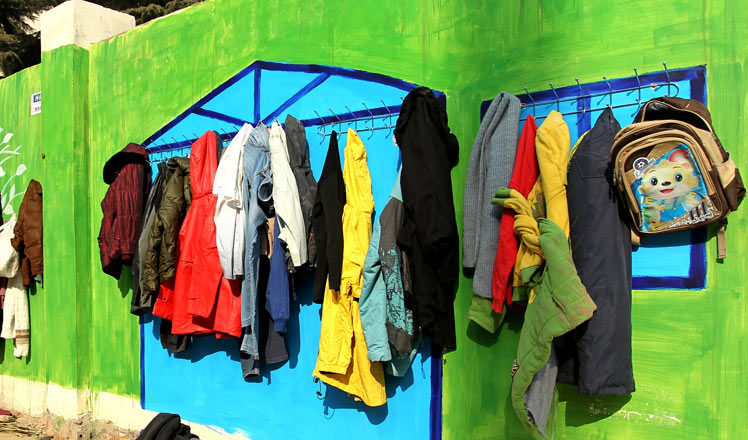
 Kindness walls bringing extra warmth to the needy
Kindness walls bringing extra warmth to the needy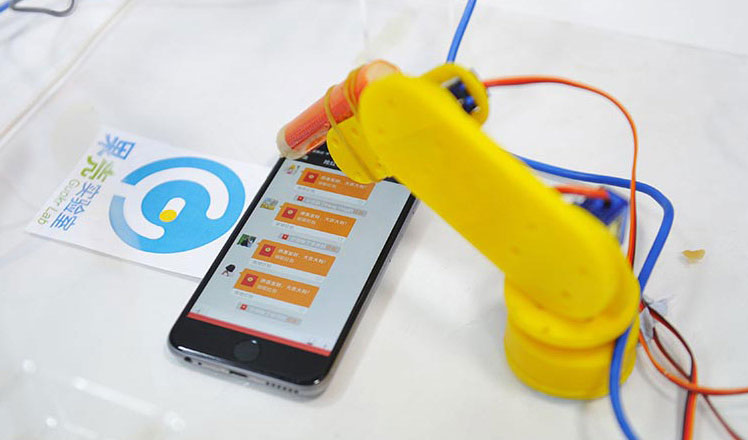
 A robot that grabs red envelopes
A robot that grabs red envelopes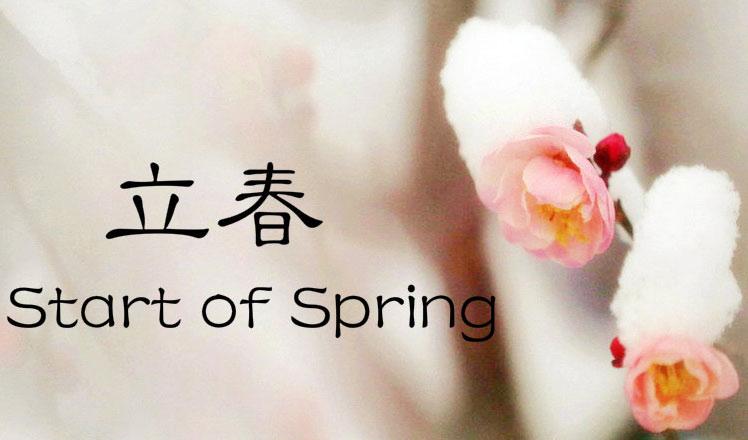
 Culture Insider: 9 things you may not know about Start of Spring
Culture Insider: 9 things you may not know about Start of Spring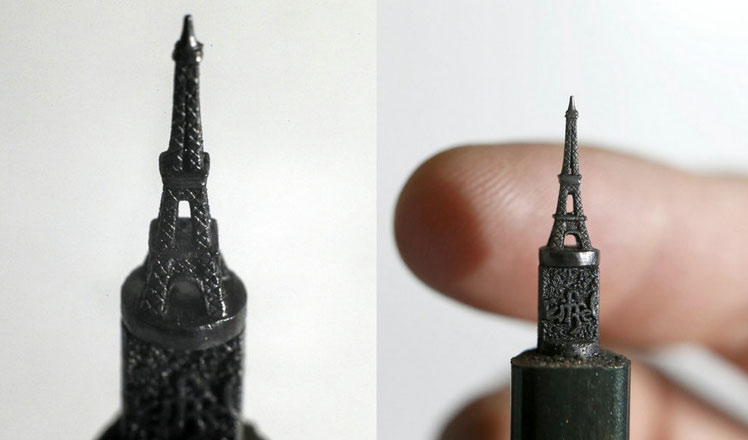
 Talented artist makes tiny pencil lead sculptures
Talented artist makes tiny pencil lead sculptures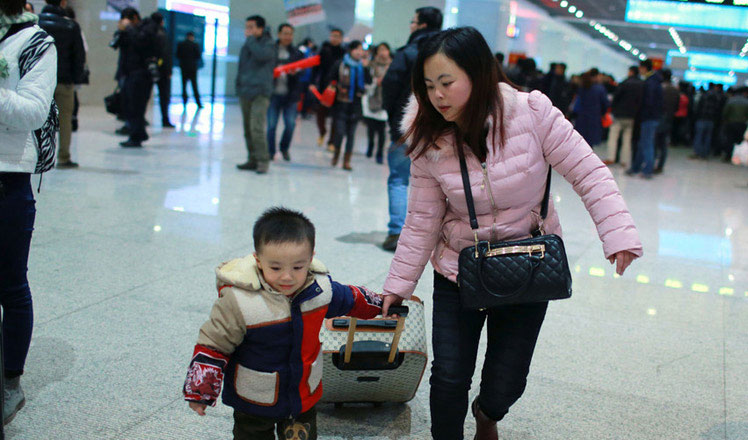
 Ten most heartwarming stories about Spring Festival Rush
Ten most heartwarming stories about Spring Festival Rush
 China's 'Moon Walker' sends back stunning HD photos
China's 'Moon Walker' sends back stunning HD photos
 Starbucks, office rents and CEOs form alternative outlook on China
Starbucks, office rents and CEOs form alternative outlook on China
 China's most beautiful wetlands
China's most beautiful wetlands
Most Viewed
Editor's Picks

|

|

|

|

|

|
Today's Top News
National Art Museum showing 400 puppets in new exhibition
Finest Chinese porcelains expected to fetch over $28 million
Monkey portraits by Chinese ink painting masters
Beijing's movie fans in for new experience
Obama to deliver final State of the Union speech
Shooting rampage at US social services agency leaves 14 dead
Chinese bargain hunters are changing the retail game
Chinese president arrives in Turkey for G20 summit
US Weekly

|

|







